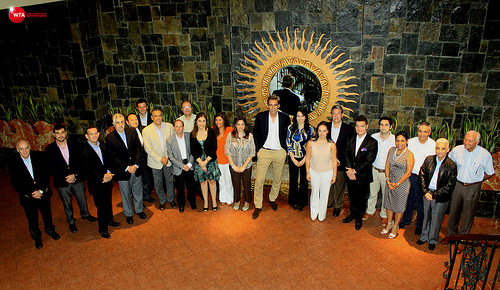67th WHA Highlights with Regards to M2K
05/06/2014
Back to the overview
Below are the highlights of the 67th World Health Assembly (WHA) held on 19-24 May in Geneva:
- During her opening speech, WHO Director General Dr Margaret Chan voiced her concerns about rising childhood obesity and the role of processed foods: "[...] We see no good evidence that the prevalence of obesity and diet-related NCDs is receding anywhere. Highly processed foods and beverages loaded with sugar are ubiquitous, convenient, and cheap. Childhood obesity is a growing problem with especially high costs [...] Countries must have well-functioning regulatory authorities to protect their populations, whether from tainted foods [...] or the marketing of unhealthy foods and beverages to children.”
- WHA adopted the terms of reference and a work plan for a Global Coordination Mechanism (GCM) on the Prevention and Control for Noncommunicable Disease (NCDs), as well as nine indicators to measure progress in implementing the WHO Global NCD Action Plan.
- A High-level Commission on Ending Childhood Obesity was established and tasked to deliver a report to the WHO Director-General early 2015 in order to convey recommendations to the May 2015 WHA.
- The Commission will be supported by an ad hoc Working Group on Science and Evidence consisting of 20 experts from various disciplines, such as epidemiology, paediatrics, nutrition, health economics, physical activity and including Professor Gerard Hastings, a well-known expert on marketing issues and advocate of food marketing regulation. The group will:
- WHA failed to adopt a Framework of engagement with non-State actors and postponed its adoption to the 68th WHA in 2015. The WHO Director-General will further consult with WHO member states and submit a report to the WHO Executive Board in January 2015.
Sign up to monthly WFA news
- During her opening speech, WHO Director General Dr Margaret Chan voiced her concerns about rising childhood obesity and the role of processed foods: "[...] We see no good evidence that the prevalence of obesity and diet-related NCDs is receding anywhere. Highly processed foods and beverages loaded with sugar are ubiquitous, convenient, and cheap. Childhood obesity is a growing problem with especially high costs [...] Countries must have well-functioning regulatory authorities to protect their populations, whether from tainted foods [...] or the marketing of unhealthy foods and beverages to children.”
- WHA adopted the terms of reference and a work plan for a Global Coordination Mechanism (GCM) on the Prevention and Control for Noncommunicable Disease (NCDs), as well as nine indicators to measure progress in implementing the WHO Global NCD Action Plan.
- A High-level Commission on Ending Childhood Obesity was established and tasked to deliver a report to the WHO Director-General early 2015 in order to convey recommendations to the May 2015 WHA.
- The Commission will be supported by an ad hoc Working Group on Science and Evidence consisting of 20 experts from various disciplines, such as epidemiology, paediatrics, nutrition, health economics, physical activity and including Professor Gerard Hastings, a well-known expert on marketing issues and advocate of food marketing regulation. The group will:
- estimate the prevalence, consequences and economic impact of childhood obesity
- examine the evidence on prevention of childhood obesity and how to reverse it in affected children and determine the best combination of policies to put in place to achieve these goals in different settings
- evaluate and recommend policy options for monitoring and surveillance
- WHA failed to adopt a Framework of engagement with non-State actors and postponed its adoption to the 68th WHA in 2015. The WHO Director-General will further consult with WHO member states and submit a report to the WHO Executive Board in January 2015.
Sign up to monthly WFA news













































































